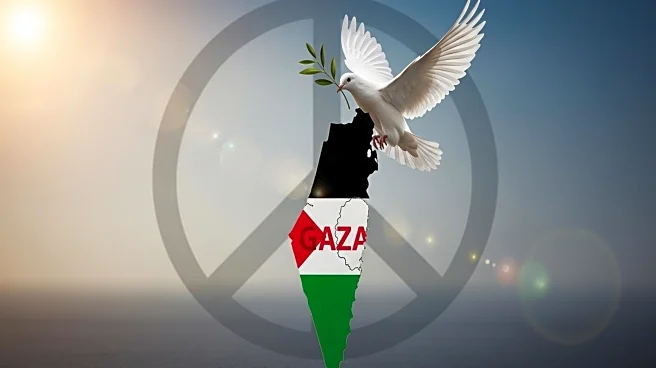What is the story about?
What's Happening?
The United States has put forward a new ceasefire proposal aimed at resolving the ongoing conflict in Gaza. The proposal, presented by U.S. envoy Steve Witkoff, calls for the immediate release of hostages held by Palestinian militants in exchange for 3,000 Palestinian prisoners and a temporary ceasefire. Hamas has expressed readiness to discuss the proposal, which includes broader lines requiring negotiations to end the war, withdraw Israeli forces, and address Israel's demand for Hamas to disarm. The proposal was first reported by Axios and has been received by Arab mediators from the U.S. According to officials from Hamas, Islamic Jihad, and Egypt, the proposal involves a prisoner exchange that includes Palestinians serving life sentences. The situation remains tense as Israel continues its offensive in Gaza, targeting high-rise buildings and warning residents to evacuate.
Why It's Important?
The proposal is significant as it represents a potential breakthrough in the long-standing conflict between Israel and Hamas. If successful, it could lead to a temporary ceasefire and the release of hostages, easing tensions in the region. The exchange of prisoners and the withdrawal of Israeli forces could pave the way for more comprehensive peace negotiations. However, the proposal's success depends on the willingness of both parties to negotiate and make concessions. The ongoing conflict has resulted in significant casualties and displacement, highlighting the urgent need for a resolution. The U.S. involvement underscores its role as a key mediator in Middle Eastern conflicts, with potential implications for regional stability and U.S. foreign policy.
What's Next?
Hamas is currently studying the proposal with other Palestinian factions and is expected to respond within days. The group demands a clear commitment to ending the war before releasing hostages. Negotiations will likely focus on the terms of the ceasefire, the withdrawal of Israeli forces, and the disarmament of Hamas. The outcome of these talks could influence future diplomatic efforts and the broader geopolitical landscape in the Middle East. Stakeholders, including Arab mediators and international observers, will be closely monitoring developments as they unfold.















